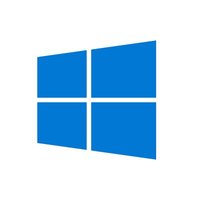Need advice about which tool to choose?Ask the StackShare community!
Oracle Linux vs Ubuntu: What are the differences?
Key Differences between Oracle Linux and Ubuntu
Oracle Linux and Ubuntu are two popular operating systems that are used in different scenarios. While they both serve the purpose of providing a platform to run applications, they have several key differences.
Package Manager: One major difference between Oracle Linux and Ubuntu is the package manager they use. Oracle Linux uses the Red Hat Package Manager (RPM), while Ubuntu uses the Debian Package Manager (APT). This means that when installing or managing software on these systems, different commands and tools are used.
Licensing: Another significant difference between Oracle Linux and Ubuntu is the licensing. Oracle Linux is a commercial distribution that requires a paid subscription for full support and updates. On the other hand, Ubuntu is an open-source distribution that is freely available and offers community support.
Default System Packages: The default system packages included in Oracle Linux and Ubuntu are different. Oracle Linux comes with packages that are specifically optimized for enterprise environments, such as the Oracle Unbreakable Enterprise Kernel. Ubuntu, on the other hand, includes a wide range of packages for general-purpose use.
Support and Updates: The support and updates provided by Oracle Linux and Ubuntu also differ. Oracle Linux offers long-term support (LTS) options with regular updates and patches, as well as additional support options for subscribed customers. Ubuntu provides LTS releases with extended support, as well as regular updates and security patches that are freely available to all users.
Package Versions: The versions of packages included in Oracle Linux and Ubuntu can also differ. Oracle Linux often includes more stable and proven versions of packages, while Ubuntu may include more recent and bleeding-edge versions. This can have implications for compatibility and stability when running certain applications.
Community and Ecosystem: The communities and ecosystems surrounding Oracle Linux and Ubuntu are also different. Oracle Linux has a strong corporate backing and provides enterprise-grade support and solutions. Ubuntu, on the other hand, has a larger user and developer community, offering a wide range of resources, tutorials, and software packages.
In summary, Oracle Linux and Ubuntu differ in terms of the package manager they use, licensing, default system packages, support and updates, package versions, and community ecosystem. These differences make them suitable for different use cases and environments, depending on the specific requirements and preferences of the users.
Ubuntu is much more faster over Windows and helps to get software and other utilities easier and within a short span of time compared to Windows.
Ubuntu helps to get robustness and resiliency over Windows. Ubuntu runs faster than Windows on every computer that I have ever tested. LibreOffice (Ubuntu's default office suite) runs much faster than Microsoft Office on every computer that I have ever tested.
Global familiarity, free, widely used, and as a debian distro feels more comfortable when rapidly switching between local macOS and remote command lines.
CentOS does boast quite a few security/stability improvements, however as a RHEL-based distro, differs quite significantly in the command line and suffers from slightly less frequent package updates. (Could be a good or bad thing depending on your use-case and if it is public facing)
At the moment of the decision, my desktop was the primary place I did work. Due to this, I can't have it blow up on me while I work. While Arch is interesting and powerful, Ubuntu offers (at least for me) a lot more stability and lets me focus on other things than maintaining my own OS installation.
Pros of Oracle Linux
- Has a Enterprise variant1
- Good for server systems1
- Many installation choices1
Pros of Ubuntu
- Free to use230
- Easy setup for testing discord bot96
- Gateway Linux Distro57
- Simple interface54
- Don't need driver installation in most cases9
- Open Source6
- Many active communities6
- Software Availability3
- Easy to custom3
- Many flavors/distros based on ubuntu2
- Lightweight container base OS1
- Great OotB Linux Shell Experience1
Sign up to add or upvote prosMake informed product decisions
Cons of Oracle Linux
- Not many average users use it1
Cons of Ubuntu
- Demanding system requirements5
- Adds overhead and unnecessary complexity over Debian4
- Snapd installed by default2
- Systemd1







































